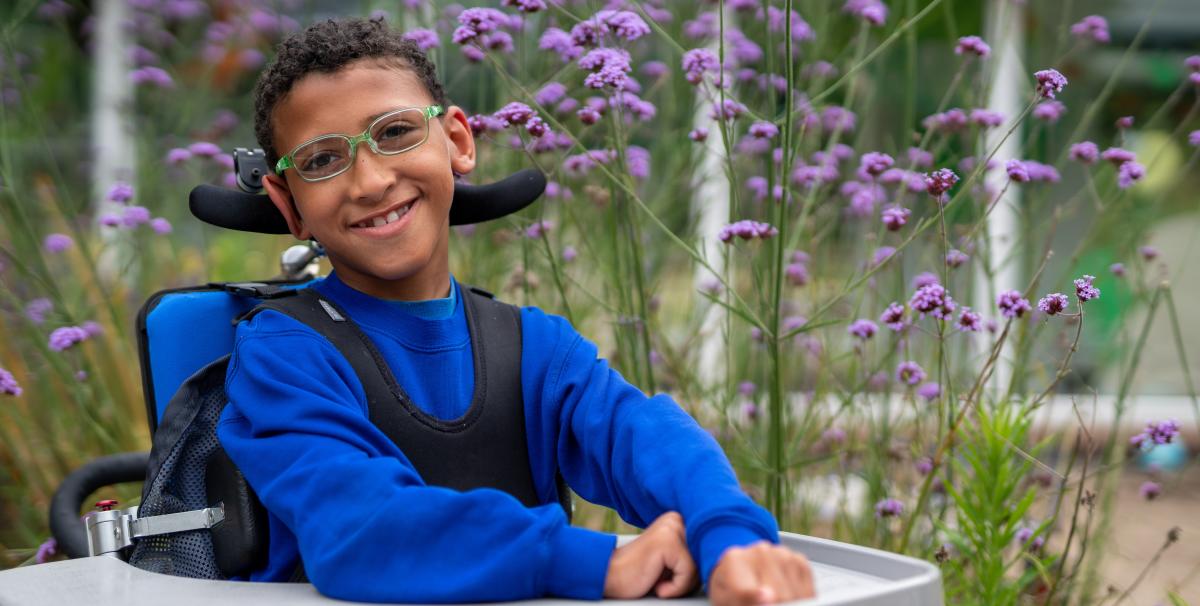
Don’t lose sight of doing what is right
The government backs the Special Schools Eye Care Service!
In June 2023 we were delighted to receive confirmation from the government that NHS sight tests will be on offer to all pupils in special schools from 2024/2025. As the article below was written when the service was in jeopardy, it may now contain some out of date information relating to future provision. Thank you to everyone who has supported the campaign, written blogs and stood firm about the benefits of the service.
The rollout of eye care and glasses dispensing in all special schools in England embodies NHS ideals. In this blog, Lisa Donaldson, our Head of Eye Care and Vision, appeals to NHS leaders to embrace this programme of work and introduces a series of guest blogs on the benefits already seen under the NHS Special Schools Eye Care Service, as the future of the Service from Spring 2023 is uncertain.
Readers will know we have been part of the campaign to persuade the NHS that this model of care was needed since 2013. The reason behind this is the fact that children with learning disabilities are 28 times more likely to have a sight problem than other children. Yet they are much less likely to be accessing the eye care they need.
Currently, an NHS Special Schools Eye Care Service is providing full eye tests in over 80 special schools, attended by over 9000 children. NHS England began its rollout in April 2021. It is operating in three regions of England. The aim was to offer to all special schools, potentially reaching 140,000 children.
Fantastic outcomes are being reported from bringing sight tests and glasses provision into special schools. Early data supported existing research evidence showing that 46% of children had never had a sight test before, yet close to half of children have a sight problem. And so much of those sight problems can be treated in school, with something as simple as glasses (the Service provides a spare pair too).
It means children who had struggled to access NHS sight tests, no longer face those barriers, and can see properly for the first time. Read more from parents here on how life-changing this has been for their children.
It also means that schools have user friendly reports on what pupils can see. In the world of special education, the small cost of bringing sight testing into schools (tens of pounds) is reaping huge rewards as children can access their learning. Read more from Hebden Green and Perseid Schools.
It is also a cost-effective model, using primary care outside of hospital, which is a huge agenda for the NHS at the moment. A large proportion of children at special schools can be under hospital eye clinic care for routine care yet struggle to attend. Read Jeremy and Haashir’s stories, and concerns expressed by the Royal College of Ophthalmologists.
This is incredibly rewarding work, with different clinicians working together to deliver different elements of the service. Read more from the eye care team in Warrington and the Association of British Dispensing Opticians on the professions involved.
Why highlight this now?
Unfortunately the promised rollout to more special schools has halted for an evaluation. Eye care delivery teams have unexpectedly been told their existing contracts are ending in Spring 2023, in order for NHS England to make decisions about the future of the Service and the way it will be commissioned.
One of the NHS messages is that the focus is now residential special schools, which raises questions about the future in all day special schools, including 80 currently getting the Service.
This also ignores the years of work that went into establishing this Service with advice from experts in the field of SEND eye care including Professor Kathryn Saunders, who blogs on her work with NHS England and the evidence for providing eye care in all special schools.
Eye care is an important right
So much hard work, collaboration and goodwill has gone into this programme of work, and indeed NHS funding. VIP visits and awards have all celebrated the NHS commitment too.
The range of benefits are clear to see. It delivers many of the ambitions we hear policymakers talk about every day: from addressing health inequalities for people with learning disabilities, to reducing hospital use. Crucially, early eye care can prevent children losing their sight, as optometrist Louise Gow explains.
If the Service is in jeopardy or severely scaled back, so many of these benefits will be lost.
Learning disability campaigner Baroness Sheila Hollins has championed the cause in parliament based on the experiences of her son Nigel. And parent Alyson Farrell has been moved to start a petition, not just on the certainty need for a national special schools service, but also improved community eye care services for people with learning disabilities too.
Read more from Alyson and Baroness Hollins, but as Alyson concludes:
“Fundamentally it is about a basic human right to equitable eye care that was promised to our children. And that is worth fighting for.”
Please do sign Alyson’s petition!

